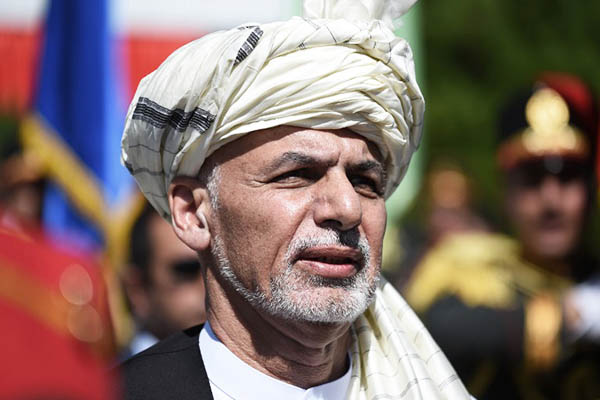
Shah Marai—AFP
Multinational conference seeks to build consensus on restoring security in war-torn state
Kabul hosts a multinational peace conference on Afghanistan on Tuesday, as the capital reels from a wave of bombings and clashes last week that left more than 100 people dead and hundreds wounded.
Much of Kabul remains on lockdown ahead of the conference, labeled the “Kabul Process,” with tighter than usual security including more armed checkpoints and armored vehicles patrolling the streets. Representatives of around two-dozen countries will attend the meeting, which aims to build international support on ways to restore security in the conflict-torn country, the government said on Monday.
“The Kabul Process is meant to reach a consensus with the region and the world for peace in Afghanistan,” said presidential spokesman Shah Hussain Murtazawi.
Kabul has been on edge since a truck bombing last Wednesday in the highly fortified diplomatic quarter killed at least 90 people and wounded hundreds, the deadliest attack in the city since 2001. The dead included at least 31 staff and business partners of Roshan, Afghanistan’s leading telecom provider, with their main office in Kabul heavily damaged and nationwide operations disrupted.
Four more people were killed Friday when hundreds of protesters incensed by the bombing clashed with police, prompting officials to beat them back with live rounds in the air, tear gas and water cannon. The protesters, holding a sit-in for a fourth day Monday near the bombing site, have demanded the resignation of Afghanistan’s security chiefs, including national security adviser Hanif Atmar.
The attacks have exacerbated tensions between rival ethnic groups and raised the prospect of a political crisis.
Foreign Minister Salahuddin Rabbani, who heads the mainly Tajik Jamiat political group, also called for Atmar’s dismissal on Monday. But President Ashraf Ghani, an ethnic Pashtun, firmly rejected the demand.
Rabbani survived an attack at the funeral of one of the protesters on Saturday where suicide bombers tore through a row of mourners. He blamed “terrorists within the system” for the blasts, suggesting it was an inside job.
The government has accused the Taliban-allied Haqqani Network of Wednesday’s bombing and alleged the funeral was targeted by bombers trained at a madrassa in Pakistan.
Previous international efforts to bring the Taliban to the negotiating table have failed, but diplomats in Kabul hailed Tuesday’s conference as a stepping stone to peace. “The launch of the Kabul Process tomorrow is an important marker for each and every country in the region to show its true support for Afghanistan’s aspirations for peace,” said Dominic Jermey, the British ambassador to Kabul. “This includes taking steps to tackle the challenges posed by terrorist networks and to prevent terrorists receiving support, whether from states or individuals.”
The conference will be attended by a host of nations, including the United States, India, China and Pakistan, which Afghanistan has long blamed for sponsoring the resurgent Taliban.
The tense week of violence during the holy fasting month of Ramzan has left hospitals in Kabul overwhelmed, with many running beyond capacity to treat the injured.
The Italian-run Emergency hospital, seen as a medical lifeline, has voiced fears for the safety of its staff with protesters camped close to the facility. “With the unfortunate events… in Kabul, our hospital has been put on the frontline,” Emergency said in a statement. “To continue our work we are asking only one thing: Security around our hospital and not to be targeted intentionally.”
